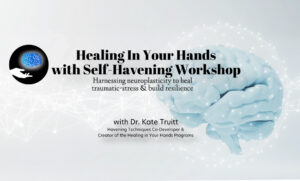Coping with Grief and Loss During the Holidays
For those of us who are going through grief and loss, the holidays can be a challenging time. Grief is a complex emotion, and when the world around us is focused on celebration, it can be isolating. Research even shows that the holidays can heighten feelings of grief and increase stress levels.
Grief can be defined as the deep and profound pain caused by the loss of someone or something important in our lives, whether it be a loved one, a significant life change, or a terminal diagnosis. It manifests in different ways, both physically and emotionally—sadness, anger, guilt, anxiety, loneliness, fatigue, changes in appetite or sleep patterns, and even physical pains.
While at times it may feel difficult to get through these holidays, we can find moments of joy and healing as we move forward by equipping ourselves with the right tools and support system.
Recognizing Grief and Trauma Reactions During the Holiday Season

The holiday season brings with it a bustling festive atmosphere filled with traditions and cultural expectations. For those who are grieving, these elements can act as trauma triggers, intensifying feelings of loss and reminding us of the absence of our loved ones or the changes in our lives. It’s important to recognize how these triggers can affect us and to navigate them with compassion and self-care.
- The Festive Atmosphere and Cultural Expectations
The joys and celebrations surrounding us can turn into reminders of those who should be here but are no longer around, causing intense feelings of sadness and longing. Additionally, cultural expectations, such as family gatherings and holiday traditions, may deepen the feelings of grief and loss.
It’s essential to remember that your feelings are valid and that grieving during the holidays is a natural part of the healing process. Allow yourself to feel the full range of emotions without judgment or pressure to conform. Taking the time to understand and honoring your feelings can help you find healing and peace. This guided meditation might be helpful in helping you process your feelings..
- Memories and Traditions
Memories of past celebrations and cherished traditions can also trigger intense emotions, both joy and sadness, during the holiday season. One way to navigate these triggers is by doing things that help you honor your memories while finding solace in the present moment, which I talk about in this YouTube video. You can share stories and memories of your loved ones with others and create new rituals that include their memory. For example, you can light a candle in their honor or write a letter to them expressing your thoughts and feelings.
- Loneliness and Social Isolation
Feelings of loneliness and social isolation can particularly increase during the holidays, intensifying grief and loss. As you navigate these emotions, remember that you are not alone. Building new connections and seeking support can make a significant difference in your healing journey.
Explore opportunities to build new connections, such as joining support groups or community organizations that align with your interests. Engage in acts of self-care to nurture your well-being, whether it’s taking a long walk in nature, practicing mindfulness or meditation, or engaging in creative outlets that bring you joy. Seek out understanding friends and family members who can provide a safe space for you to express your emotions and offer support.
Empowering Strategies for Self-Care and Connection While Coping with Grief During the Holidays

Taking care of yourself while on your healing journey is important in finding healing and resilience. Here are some empowering coping strategies to help you navigate the holiday season with compassion and self-care:
- Set Enough Time for Self-Care
Self-care is crucial during this time, both physically and emotionally. Nourishing your body with a balanced diet, practicing relaxation techniques, and incorporating physical activity into your routine can all provide comfort and solace.
It’s also important that you create a safe space for your feelings during the holidays. In this psychoeducation video, I talk about the importance of having self-compassion in your grieving journey.
- Establishing Boundaries
Creating space for yourself can be challenging during the holidays, but it’s important to prioritize your needs. Say “no” to commitments and set limits on social engagements, modify traditions to fit your needs, or decline commitments that feel overwhelming to help establish healthy boundaries.
- Expressive Writing
Expressive writing is a therapeutic technique that can help release emotions and find clarity. Start by allowing yourself uninterrupted time, then focus on a specific emotion or event related to your grief. Write freely without worrying about grammar or punctuation.
Give yourself the permission to explore your emotions openly, writing in a stream-of-consciousness style. This can help bring clarity and perspective to your emotions, allowing you to process them more effectively. If you’re looking for other creative ways to express yourself, I’ve written this blog on The Healing Power of Art and Creative Expression in Trauma Recovery.
- Seeking Professional Support
Sometimes, seeking professional help is necessary to navigate through grief. Reach out to a therapist or counselor if you need additional support. Online support communities can also provide a safe and understanding space to connect with others who are experiencing similar feelings and challenges.
For those residing in California, we offer Individual Trauma Treatment to help you navigate through your healing journey.
Moving Forward
Grief is a personal experience. There is no right or wrong way to grieve. Each journey is unique, and it’s important to honor your emotions and give yourself the space and compassion you need. By equipping yourself with the right tools and support system, you can find moments of joy and healing as you navigate through the holidays and beyond.
Additional Mental Health Resources
If you’re looking for additional mental health resources:

- Healing in Your Hands with Self-Havening Live Virtual Workshop. Join us in this workshop to equip yourself with the tools to regulate emotions and minimize stress using the evidence-based NeuroTriad model. This workshop is hosted by the Truitt Institute.
- Healing in Your Hands Book: Self-Havening Practices to Harness Neuroplasticity, Heal Traumatic Stress, and Build Resilience. Within its pages are real-life examples and practical tips and insights you can use to heal the past, create the present, and build the future you want.
- Keep Breathing: A Psychologist’s Intimate Journey Through Loss, Trauma, and Rediscovering Life. Part memoir and part scientific exploration, this book is my personal account of my grieving and healing journey.
You can also find me on the following social media channels:
- Connect with me on TikTok , where I share daily videos on mental health, therapy, and psychology.
- Subscribe to our YouTube channel for tons of psychoeducational and guided exercises that can help you in your healing journey.
Aside from Individual Trauma Treatment, we also offer the following mental health services for those who are residing in California:
- Havening Techniques
- Cognitive Behavioral Therapy
- Effects of Childhood Trauma
- Continuing Care
- Trauma and Stressor Related Disorders
REFERENCES:
- Berliner, T. (2018, December 11). How to Cope with Grief During the Holidays: 8 Strategies. [Blog Post]. The Psychology Group Fort Lauderdale. https://www.psychologygroupftl.com/how-to-cope-with-grief-during-the-holidays/
- Freedman, J. (2022, November 22). Working Through Grief During the Holidays. Psychology Today. https://www.psychologytoday.com/intl/blog/lifetime-connections/202211/working-through-grief-during-the-holidays




